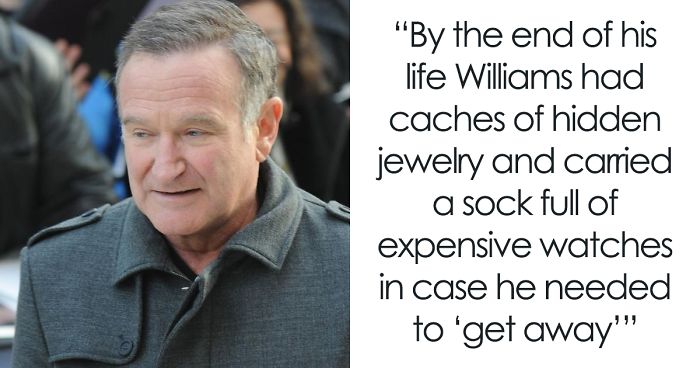
“Robin Williams Didn’t Kill Himself”: This Person Wants People To Stop Using The Actor As A ‘Suicide Awareness’ Case
Actor and Oscar winner Robin Williams passed away on the 11th of August, 2014. His death, however, remains a hot topic. Recently, Imgur user Nonameisthatfrench posted his thoughts, saying that “we need to stop using Robin Williams as a case for ‘suicide awareness'” and it quickly went viral. The main thoughts they’ve presented come from a publication in the journal Neurology, written by the actor’s widow, Susan Schneider Williams.
Titled ‘The terrorist inside my husband’s brain,’ her personal piece provides a detailed explanation of what exactly Robin was suffering from. “Robin is and will always be a larger-than-life spirit who was inside the body of a normal man with a human brain,” Susan wrote. “He just happened to be that 1 in 6 who is affected by brain disease.” (Facebook cover image: Rune Hellestad )
We need to stop using Robin Williams as a case for ‘suicide awareness’
Image credits: Peggy Sirota
“Robin was losing his mind and he was aware of it. Can you imagine the pain he felt as he experienced himself disintegrating? And not from something he would ever know the name of, or understand? Neither he, nor anyone could stop it—no amount of intelligence or love could hold it back.”
He had dementia with Lewy body disease. He didn’t spontaneously commit suicide due to mental illness, it was self-inflicted euthanasia
On May 28th, Williams was diagnosed with Parkinson disease. “When we were in the neurologist’s office learning exactly what this meant, Robin had a chance to ask some burning questions. He asked, “Do I have Alzheimer’s? Dementia? Am I schizophrenic?” The answers were the best we could have gotten: No, no, and no. There were no indications of these other diseases. It is apparent to me now that he was most likely keeping the depth of his symptoms to himself.”
But that wasn’t the end of it. Throughout his battle, Robin had experienced nearly all of the 40-plus symptoms of Lewy body disease (LBD). “Robin’s was one of the worst LBD pathologies [medical professionals] had seen and that there was nothing else anyone could have done.”
“But would having a diagnosis while he was alive really have made a difference when there is no cure? We will never know the answer to this. I am not convinced that the knowledge would have done much more than prolong Robin’s agony while he would surely become one of the most famous test subjects of new medicines and ongoing medical trials. Even if we experienced some level of comfort in knowing the name, and fleeting hope from temporary comfort with medications, the terrorist was still going to kill him. There is no cure and Robin’s steep and rapid decline was assured.”
“The massive proliferation of Lewy bodies throughout his brain had done so much damage to neurons and neurotransmitters that in effect, you could say he had chemical warfare in his brain.”
“After months and months, I was finally able to be specific about Robin’s disease. Clinically he had PD, but pathologically he had diffuse LBD. The predominant symptoms Robin had were not physical—the pathology more than backed that up. However, you look at it—the presence of Lewy bodies took his life.”
People had a lot to say about Robin’s case
317Kviews
Share on FacebookFully in favour of "right to die" - to be treated as compassionately as we treat our sick pets when there is no hope and life is unbearable. People shouldnt have to jump through hoops and spend a fortune (that some may not have) to die in a foreign country.
!!! I really don't get why we don't have the right over our own life. That's horrible and no freedome at all.
Load More Replies...One of the issues regarding assisted suicide in the UK is that the person could be influenced by family members for their own gain. The opposite argument is also possible. People can pay up to £10,000 to travel to a Swiss clinic. For a person with limited financial means there is always the possibility that they may be discouraged from spending a large proportion of a potential "inheritance" on what they wish by those who would benefit from it in the near future.
Influence by family members, and the feeling of duty to not be a burden, were arguments used by right to die opponents in Oregon in 1994 when the measure first passed, and then in 1997 when the repeal was rejected. Maybe there are people who would abuse it, but terminally ill patients are surrounded by people invested in their care, and the euthanasia process has controls in place to mitigate abuses. The thing about legal right to die is that it puts the patient in control of their condition. They now have the option to choose when it's time, instead of that being dictated by a disease.
Load More Replies...Fully in favour of "right to die" - to be treated as compassionately as we treat our sick pets when there is no hope and life is unbearable. People shouldnt have to jump through hoops and spend a fortune (that some may not have) to die in a foreign country.
!!! I really don't get why we don't have the right over our own life. That's horrible and no freedome at all.
Load More Replies...One of the issues regarding assisted suicide in the UK is that the person could be influenced by family members for their own gain. The opposite argument is also possible. People can pay up to £10,000 to travel to a Swiss clinic. For a person with limited financial means there is always the possibility that they may be discouraged from spending a large proportion of a potential "inheritance" on what they wish by those who would benefit from it in the near future.
Influence by family members, and the feeling of duty to not be a burden, were arguments used by right to die opponents in Oregon in 1994 when the measure first passed, and then in 1997 when the repeal was rejected. Maybe there are people who would abuse it, but terminally ill patients are surrounded by people invested in their care, and the euthanasia process has controls in place to mitigate abuses. The thing about legal right to die is that it puts the patient in control of their condition. They now have the option to choose when it's time, instead of that being dictated by a disease.
Load More Replies...
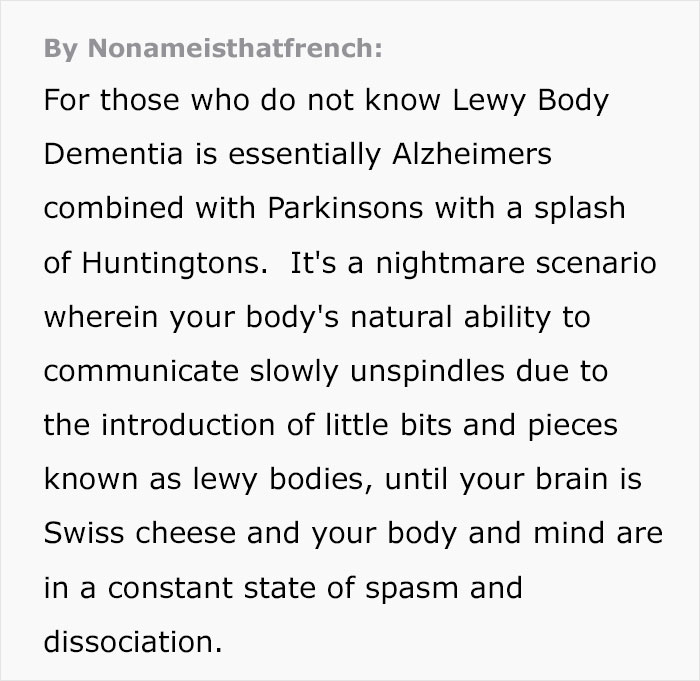
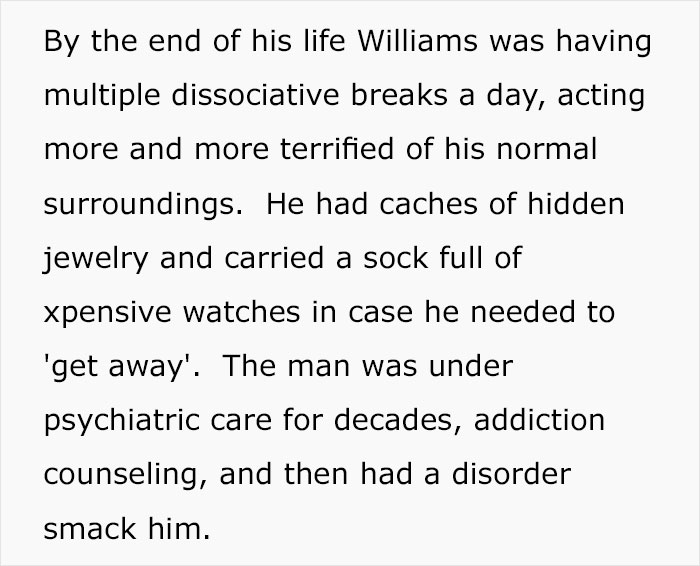
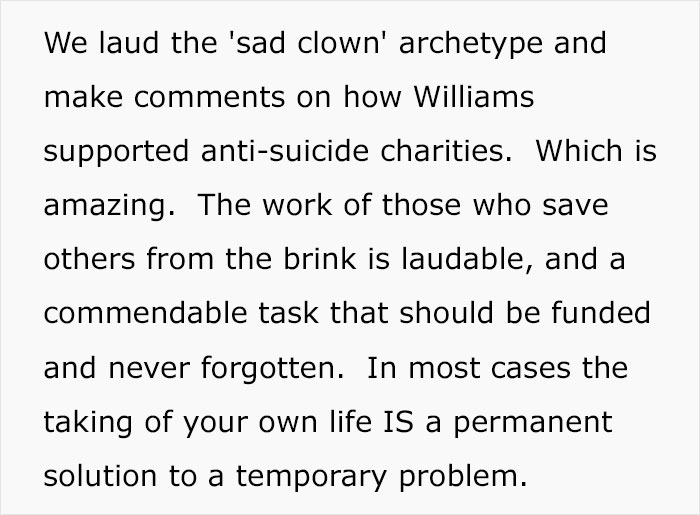
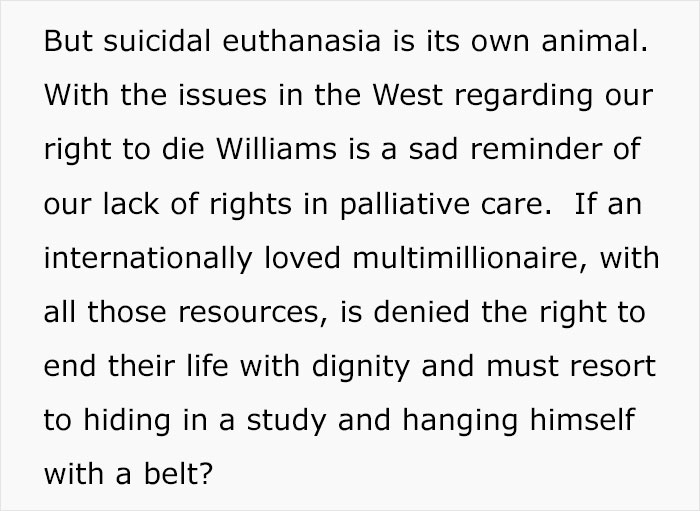
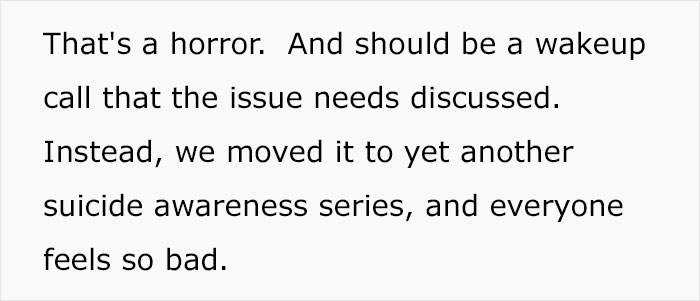




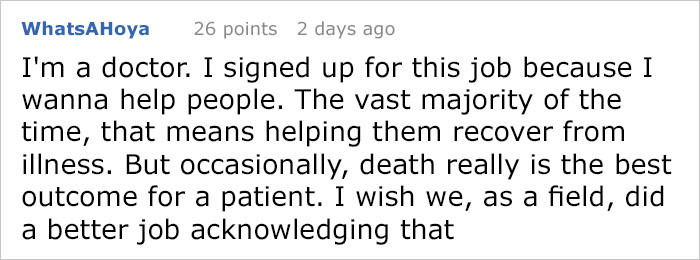


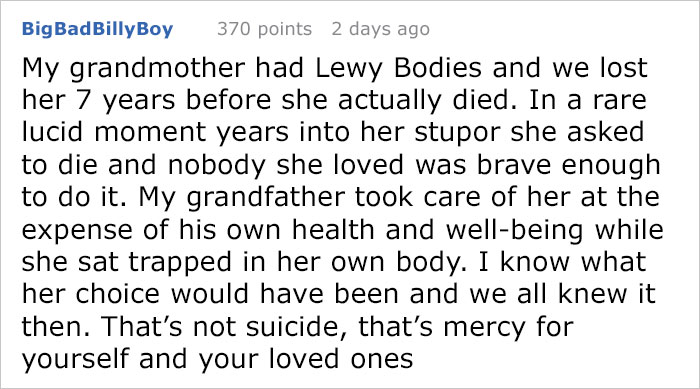




















273
87